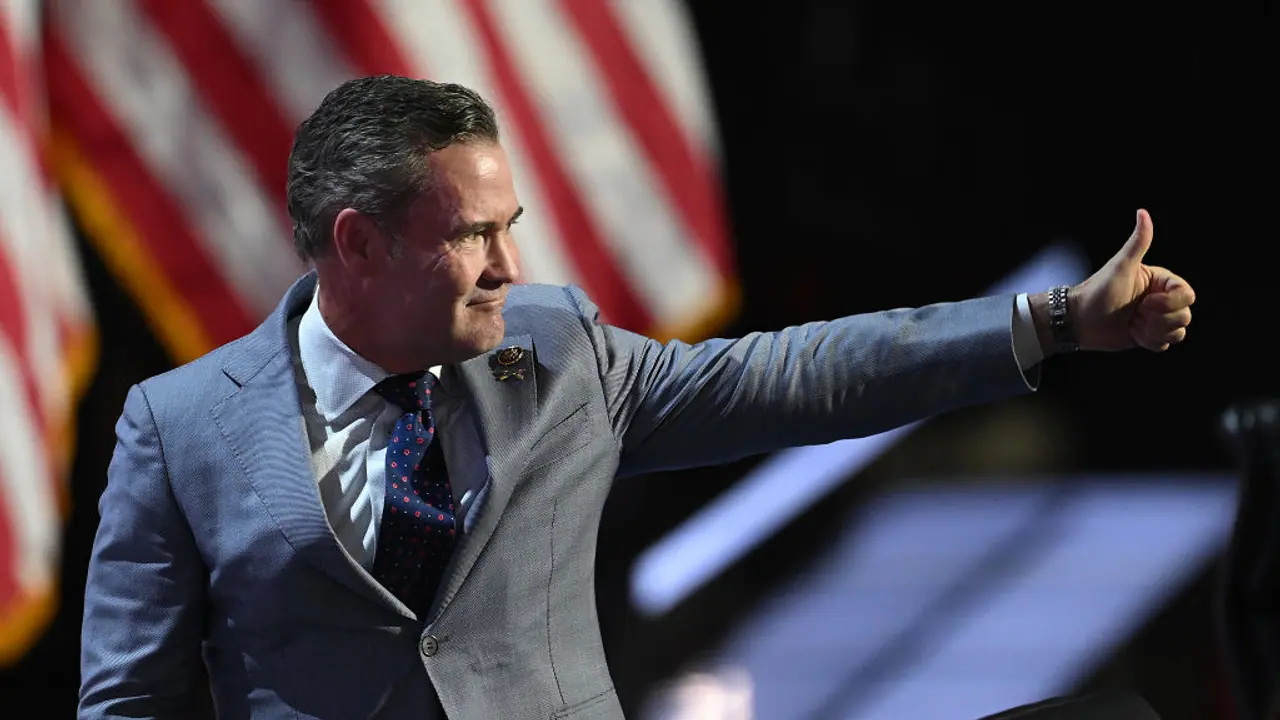In a significant move reflecting a hardline stance toward China, US President-elect Donald Trump has appointed Florida Representative Mike Waltz as his new national security advisor.
In a significant move reflecting a hardline stance toward China, US President-elect Donald Trump has appointed Florida Representative Mike Waltz as his new national security advisor. Waltz, a retired Army Green Beret with extensive military experience and strategic policy expertise, has long positioned himself as a staunch critic of China's actions and an advocate for increased US military readiness, particularly in the Indo-Pacific region.

Waltz’s appointment signals the incoming administration’s determination to confront what he has described as the "greater threat" posed by the Chinese Communist Party. As a vocal critic of Beijing, Waltz had previously called for a US boycott of the 2022 Winter Olympics in Beijing, citing China's handling of the COVID-19 pandemic and its human rights abuses against Uighur Muslims. His strong rhetoric has been coupled with strategic recommendations urging the US to shift its focus from Europe and the Middle East to counter Chinese expansion in the Indo-Pacific region.
In a recent co-authored article in The Economist, Waltz and former Pentagon strategist Matthew Kroenig argued that the US must urgently address the growing challenges posed by China. They stated, “The next president should act urgently to bring the conflicts in Ukraine and the Middle East to a swift conclusion and focus strategic attention where it should be: countering the greater threat from the Communist Party.”
Waltz has been a vocal advocate for bolstering US military capabilities in response to China’s increasing aggression, especially concerning Taiwan. He has called for substantial increases in defense spending to restore the balance of power in the region.
Implication on China
Waltz’s views will likely heighten tensions between the US and China. His appointment aligns with the broader US approach under Trump’s "America First" policy, which emphasizes national security and economic interests over multilateral agreements.
For China, Waltz’s hawkish stance signals a more confrontational US foreign policy, making it less likely that the two nations will ease tensions on issues such as trade, military posturing in the South China Sea, and ideological differences.
Strengthening India-US relations
Waltz’s appointment also holds significant implications for US-India relations. As co-chair of the India Caucus in Congress, Waltz has been a strong advocate for deeper US-India cooperation, particularly in the face of China’s aggressive actions in the Indo-Pacific. India, which shares a contentious border with China, may view Waltz’s strategic focus on countering Chinese influence as an opportunity to strengthen its ties with Washington.
Given India’s own complex relationship with China, Waltz’s emphasis on military preparedness and strategic alliances could enhance defense cooperation between the US and India, particularly in light of growing tensions along the Line of Actual Control (LAC). India has been seeking stronger defense partnerships with the US, and Waltz’s leadership could serve as a catalyst for advancing this collaboration, including potential joint military operations and agreements.
A bold military agenda
At 50, Waltz brings decades of experience in both combat operations and defense policy to the role of National Security Advisor. Having served in the US Army and undertaken multiple tours in Afghanistan, Waltz has a deep understanding of military readiness and the importance of maintaining a robust defense posture. His past criticism of President Joe Biden’s handling of foreign policy, particularly the US withdrawal from Afghanistan, highlights his belief in a strong US global presence.
As National Security Advisor, Waltz is expected to play a key role in shaping strategies that prioritize military strength and preparedness, especially in the Indo-Pacific. His appointment reinforces Trump’s "America First" doctrine, which focuses on enhancing US security and economic power, often at the expense of traditional international alliances such as NATO.
Implications on NATO and European relations
Waltz’s appointment could reignite concerns among NATO allies, especially in Europe. Trump's skepticism toward NATO during his first term, including questioning the alliance's value and suggesting the US might reconsider its participation if allies did not meet defense spending targets, created tensions with European partners. Waltz’s focus on China and the Indo-Pacific may lead to a shift in US priorities, prompting NATO allies to reassess their own defense strategies in response to the changing global security landscape.
As the Trump administration prepares for its second term, Waltz will be at the forefront of shaping US foreign policy, particularly with respect to China and the Indo-Pacific. His appointment comes at a critical juncture, as the US seeks to recalibrate its military and diplomatic efforts in the face of China's growing influence. Expect increased diplomatic outreach to India, enhanced defense cooperation, and a renewed focus on regional partnerships like the Quad.
While Beijing may double down on its regional initiatives, including the Belt and Road Initiative and military activities in the South China Sea, Waltz’s strategic leadership could solidify US-India ties and contribute to a more unified counterforce against China's ambitions in the Indo-Pacific.
In the coming months, US foreign policy will likely evolve under Waltz’s guidance, with a strong emphasis on military preparedness and strategic alliances aimed at countering the growing influence of China on the global stage.
